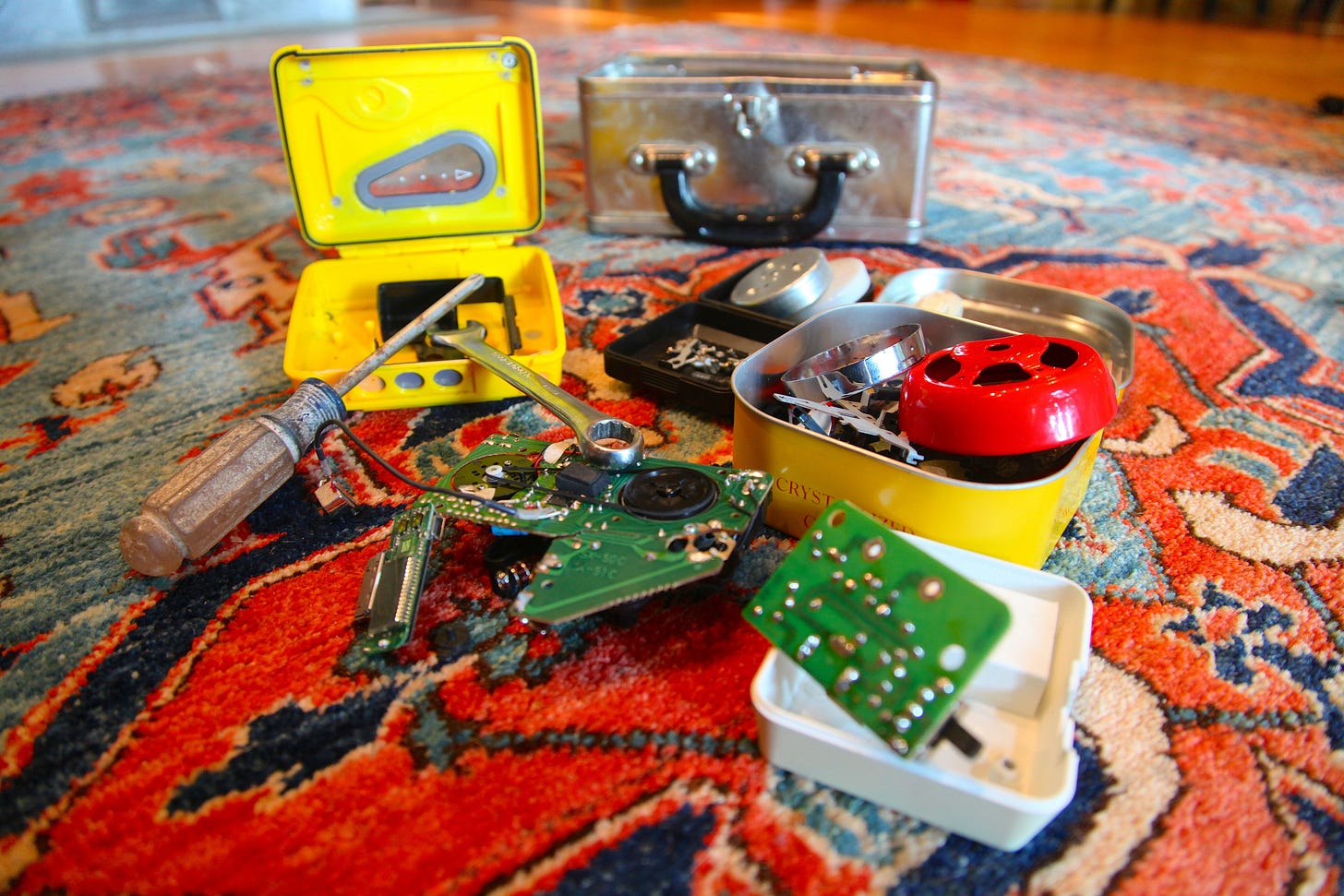Where are all the electronics repair shops?
They should be as ubiquitous as dry cleaners
I have a vendetta against my microwave.
This isn’t some hokey nonsense about radiation or health concerns (multiple studies prove that the machines are totally fine), it’s more personal than that: my microwave is broken.
The glass plate no longer turns.
Whenever I try and warm something up in the microwave, it stays stuck to the exact spot, its throaty hum a static taunt, as it does the excellent job of getting food lava-hot in some spots and utterly frigid in others.
Really, I only have myself to blame.
The plate stopped turning while the microwave was still under warranty, but life was so intense during that period that I did absolutely nothing to remedy the situation.
Instead, I let the warranty slide and elapse. Now, like an albatross around my neck in a Romantic poem, I’m stuck with a microwave that — technically at least — works, but does so in a fundamentally irritating way.
Before you say anything, yes, I’m keenly aware that a bit of internet time could fix the issue; I could find and order a replacement part and repair the microwave myself. I know this is within my grasp.
Alas, though, the irritation-to-time-it-takes scale hasn’t flipped. Having a patchy microwave doesn’t cause me enough inconvenience to invest my time in fixing it.
Despite that, recently, I’ve been pondering about solving the issue in the manner of an 1800s oil baron: buying a new one.
There’s an elegance to that idea. It’d be a fresh slate. A clean start. Maybe this new microwave would have features the old one doesn’t. Can I control it with my phone? Does it have a touchscreen? Is there an automatic cake mode? The potential is endless.
I’ve been close to pulling the trigger, but I changed my mind recently. I was interviewing someone from Fairphone, a company that makes sustainable, upgradeable handsets.
During this chat, they mentioned that one of the company’s core principles is “the most sustainable phone is the one you already own.”
Effectively, the greenest way to engage with consumer technology is to retain the devices you already have, to try and get them repaired, rather than just throwing them away to buy something new.
The reasoning is pretty clear: a new product requires raw materials, assembly, shipping, and a myriad of other energy-intensive tasks. Something you own already, well, exists. It doesn’t need to be made again.
It’s hard to disagree with that conclusion, but then something struck me: where the hell do I go to get a microwave repaired?
I guarantee every high street has shops where you can get your phone screen fixed, but nowhere I’ve ever lived had a general electronics repair store. There are dry cleaners, tailors, greengrocers, and gambling stores galore — but a place where I can get an old kettle fixed or the battery in a pair of wireless headphones replaced?
Nowhere to be seen.
But… why?

The more I’ve pondered the idea of local repair stores, the more stringent I’ve become in thinking they have to be made a reality.
This is a situation where governments should step in, maybe tax the sale of new electronics and use those proceeds to support the creation of repair and recycle shops.
More than 53.6 million metric tons of e-waste is generated every year, with under 20% of it being properly processed. Hell, I know I’ve just thrown old gadgets away because there’s not an easy way to deal with them. Imagine how much better things would be if you could take in an unwanted gadget to a repair store and, for example, get another item repaired for free in return?
Instead though, I’m in a situation where there’s nowhere close that I can get my piece-of-wank microwave fixed.
I’m a lazy man — and I must be protected from myself at all costs. That’s why we need electronics repair shops. Maybe we should riot about it.




Move to Australia, where warranty periods are meaningless. In your situation, it would be repaired (well, of course not, they'll just throw it in the bin and give you a new one).